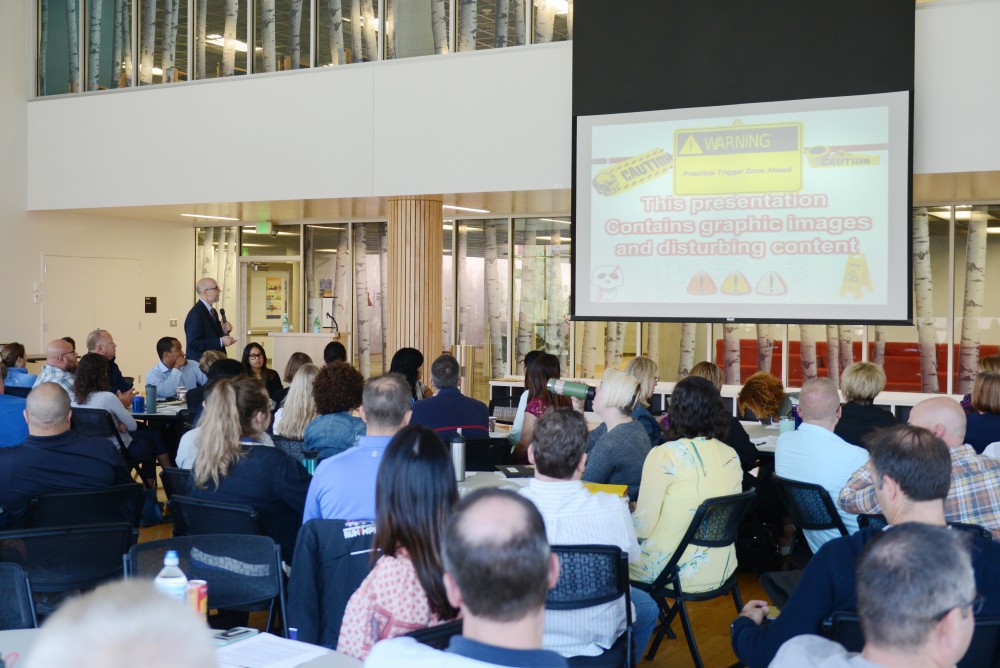When dealing with victims of trauma, changing how police officers ask questions can make the biggest difference.
Former Special Agent Russell Strand visited the University of Minnesota Police Department Tuesday to train the force on how to conduct Forensic Experiential Trauma Interviews, a special type of interview that maximizes information collection and minimizes harm when talking to trauma victims.
Funded by University Services and the University’s President’s Office, the training was offered to the UMPD as well as 39 other local agencies, including the Minneapolis Police Department, said UMPD Chief Matt Clark. Nearly 129 law enforcement officers attended.
Strand said the one-day training included lectures on the neuroscience behind trauma, video examples of FETI interviews and individual exercises officers could use to help them understand what the process looks and feels like for the interviewer and interviewee.
A longer two or three day FETI training would include more hands-on exercises, he said.
One of the most important parts of FETI interviewing, Strand said, is letting the trauma survivor run the interview, not the officer.
“The [victim] should do about 80 to 90 percent of the talking,” Strand said, “It’s their experience, you got to let them take their time.”
He said he encourages officers to think of themselves as facilitators rather than interviewers since the victim provides most of the information.
He said the FETI interview style also instructs officers to use short, sensory-based questions about the event’s details, as opposed to the typical “Who, What, Where, When, Why, How” questions that officers are trained to ask.
During a traumatic event, Strand said the prefrontal cortex of the brain shuts down, causing victims to experience difficulty remembering sequences of events or the event itself. Therefore, he said, victims can better recall sensory details.
This unique memory recording style makes traditional interview styles fruitless and sometimes traumatizes victims, said Katie Eichele, director of the University’s Aurora Center.
Eichele said recording memory in a nontraumatic situation is like taking notes in a notebook: the events are organized sequentially and easy to locate.
But recording a memory of a traumatic event is like taking notes on a stack of Post-Its, the order of events may get shuffled and sometimes a part of the memory is even lost, she said.
Strand’s forensic interview training teaches officers how to help interviewees find and organize these Post-It memories, while other techniques may not take into account that victims need time and help to do so.
Eichele, who has led training on the neurobiology of trauma, said she recommended the training to UMPD after seeing firsthand that Strand’s interview techniques take into account how trauma affects a victim’s memory.
When UMPD asked for funding for the training, the president’s office jumped at the chance to fund it, said Jon Steadland, interim chief of staff.
This kind of training is an unexpected offshoot of the University’s larger initiative to curb sexual misconduct, Steadland said, and the office was excited to hear UMPD was pursuing training to supplement the initiative as a whole.
“It’s a really good endeavor for them to undertake,” he said.








